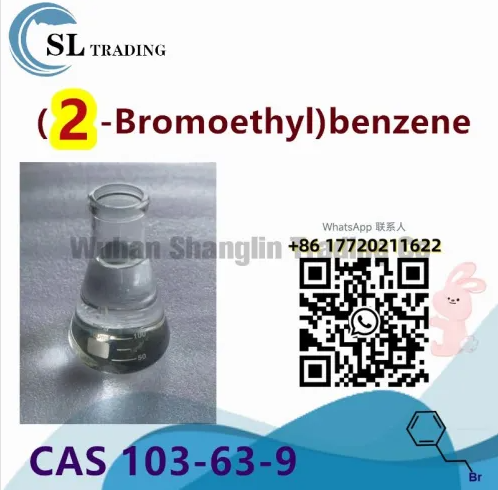What is the physical state of 2 Bromoethyl benzene?
Chemistry is a vast field that encompasses a myriad of compounds, each with its own unique properties and characteristics. Among these compounds, 2-bromoethyl benzene is a striking substance with fascinating physical properties. Understanding its physical state and properties is essential for various applications in chemistry and industry. In this article, we will delve into the physical state of 2-Bromoethyl benzene and explore its structure, properties and uses.
Chemical Structure
2-Bromoethyl benzene, also known as o-bromoethylbenzene, is an organic compound with the chemical formula C8H9Br. In order to grasp its physical state, it is first necessary to understand its molecular structure. The core of 2-bromoethyl benzene consists of a benzene ring, which is a six-membered carbon ring with alternating single and double bonds. Attached to the benzene ring is a bromoethyl group consisting of two carbon atoms (ethyl) and one bromine atom. This unique structure plays a key role in determining its physical properties.
Physical Properties
Physical state: 2-Bromoethyl benzene is usually liquid at room temperature. Its boiling point is about 379°F (193°C) and its melting point is about -13°F (-25°C). These values indicate that it is a relatively volatile liquid with a lower melting point than common solids such as water or table salt.
Colour and Odour: Pure 2-bromoethyl benzene is a colourless to light yellow liquid with a distinctly sweet odour. This odour is a characteristic feature that helps to identify and distinguish it from other chemicals.
Density: The density of 2-bromoethyl benzene is approximately 1.408 g/cm3 at 20°C. This density value is slightly lower than the density of water (1 g/cm3), which means that it is less dense than water and will float if the two are mixed.
Solubility: 2-Bromoethyl benzene is slightly soluble in water, which is typical of non-polar organic compounds. However, it is highly soluble in organic solvents such as acetone, ethanol and ether.
Refractive Index: At 20°C, 2-Bromoethyl benzene has a refractive index of approximately 1.545, which is an important parameter for characterising substances based on how they bend light. This value can be used to identify and analyse compounds.
Vapour Pressure: The vapour pressure of 2-bromoethyl benzene increases with temperature, consistent with its relatively low boiling point. This is an important factor to consider in industrial applications involving this compound.
Chemical Properties
An understanding of the chemical properties of 2-bromoethyl benzene is essential to grasp its reactivity and potential applications:
Reactivity: The bromine atom in 2-bromoethyl benzene makes it susceptible to nucleophilic substitution reactions in which the bromine can be replaced by another group. This reactivity is important in various organic synthesis processes.
Aromaticity: The benzene ring in the compound exhibits aromaticity, which implies a high degree of stability due to its electron delocalisation. This property contributes to the overall stability of the molecule.
Toxicity: 2-Bromoethyl benzene should be handled with care as it can be toxic when ingested, inhaled or absorbed through the skin. Appropriate safety precautions must be taken when working with this compound, including the use of protective equipment and adequate ventilation.
Areas of application
2-Bromoethyl benzene is widely used in various fields due to its unique physical and chemical properties:
Organic synthesis: It is often used as a reagent in organic synthesis, especially in the preparation of pharmaceuticals, agrochemicals and other fine chemicals. Its ability to carry out nucleophilic substitution reactions is valuable in creating new compounds.
Solvent: 2-Bromoethyl benzene is used as a solvent in the chemical industry, especially for reactions involving non-polar compounds. Its solubility characteristics make it suitable for dissolving and manipulating a wide range of substances.
Intermediate: It is used as an intermediate in the synthesis of other organic compounds, such as dyes, fragrances and plastics. Its versatility makes it a valuable building block for the manufacture of a wide range of products.
Research and development: Chemists and researchers use 2-bromoethyl benzene as a tool in the laboratory to study reaction mechanisms, test new catalysts and explore the possibilities of organic chemistry.
Conclusion
In conclusion, 2-bromoethyl benzene is a fascinating organic compound with a unique physical state and a wide range of applications. Its liquid, colourless to yellowish appearance and sweet taste are its distinguishing features. Understanding its chemical structure, physical properties and reactivity is essential for scientists and chemists working in a variety of industries, from pharmaceuticals to fine chemicals. As we continue to explore the world of chemistry, compounds such as 2-bromoethyl benzene will continue to play a vital role in improving our understanding and capabilities in this field.
280
0
0


Comments
All Comments (0)